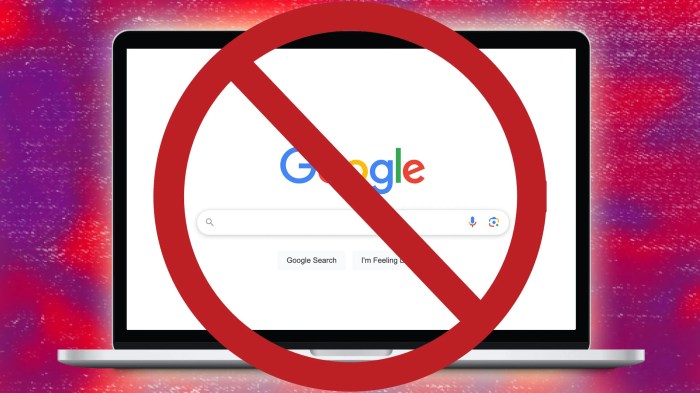Why it is wrong to glorify a leader and belittle a follower? This exploration delves into the detrimental effects of excessive leader praise and the crucial importance of balanced perspectives in leadership. We’ll examine how glorifying a leader can hinder follower development, erode accountability, and even distort historical narratives. Understanding these dynamics is key to fostering healthier, more equitable, and ultimately more successful organizations and societies.
The focus is on the negative impact of over-praising leaders and undervaluing followers. This analysis explores how blind loyalty stifles critical thinking, misallocates resources, and ultimately damages the individuals and groups being led. By understanding these pitfalls, we can cultivate a more balanced and empowering approach to leadership.
The Dangers of Leader Glorification: Why It Is Wrong To Glorify A Leader And Belittle A Follower
Uncritical praise of leaders, while seemingly harmless, can have profound and detrimental effects on individuals and societies. The allure of a strong, charismatic figure can mask potential flaws and lead to blind loyalty, hindering critical thinking and potentially harming the collective well-being. This glorification can create an environment where dissent is stifled, innovation is discouraged, and resources are misallocated.
Examining the psychological effects and historical examples reveals the crucial need for a balanced perspective.Excessive praise of leaders can cultivate a sense of unquestioning obedience in followers. This can lead to a psychological dependence, where individuals become unable to think critically about the leader’s actions or policies. This phenomenon can be observed across various historical and contemporary contexts.
Psychological Effects of Excessive Leader Praise
Unquestioning admiration can foster a dependency on the leader’s guidance, effectively diminishing the followers’ capacity for independent thought and decision-making. This can manifest in a range of behaviors, from passive acceptance of questionable policies to a suppression of dissenting voices. A society overly focused on the leader’s image may undervalue the contributions and perspectives of others, leading to a stagnation of ideas and innovation.
Historical Examples of Glorification’s Detrimental Consequences
Throughout history, the glorification of certain leaders has led to disastrous outcomes. The cult of personality surrounding figures like Adolf Hitler demonstrates how unchecked admiration can pave the way for horrific atrocities. Similar dynamics were present in the regimes of Joseph Stalin and Pol Pot, where unquestioning loyalty facilitated widespread oppression and violence. The consequences of such blind faith are profound and often tragic.
Historical figures, regardless of their achievements in other aspects, can be remembered for their destructive actions.
Stifling Critical Thinking and Dissent
Blind loyalty to a leader can severely stifle critical thinking and dissent. When individuals are conditioned to accept the leader’s pronouncements without question, the space for constructive criticism and alternative perspectives shrinks. This lack of debate and scrutiny can lead to the implementation of flawed policies or the perpetuation of harmful ideologies. The absence of dissenting voices can create an environment where errors in judgment go uncorrected, leading to significant and lasting damage.
Misallocation of Resources and Power
The focus on glorifying a leader can lead to a misallocation of resources and power. When resources are directed towards maintaining the leader’s image rather than addressing pressing societal needs, the overall well-being of the populace suffers. This can manifest in various ways, including neglecting essential infrastructure, diverting funds towards extravagant projects, or prioritizing the leader’s agenda over the needs of the citizens.
Leaders may focus on personal power and glory rather than public service.
Contrasting Cultures: Leader-Centric vs. Critical Thinking Cultures
| Characteristic | Leader-Centric Culture | Culture Valuing Critical Thinking & Dissent |
|---|---|---|
| Focus | Unquestioning loyalty to the leader; emphasizing the leader’s authority | Open dialogue; valuing diverse perspectives and critical analysis |
| Decision-Making | Decisions primarily based on the leader’s judgment; limited input from others | Collaborative decision-making; considering various viewpoints |
| Innovation | Limited space for new ideas; potential for stagnation | Encourages creative thinking and diverse perspectives |
| Resource Allocation | Resources often directed towards maintaining the leader’s image or supporting the leader’s agenda | Resources allocated based on needs and merit |
| Dissent | Suppressed or punished; perceived as a threat to the leader | Dissent is valued as a catalyst for improvement |
The Importance of Balanced Perspectives

Healthy leadership isn’t about flawless perfection; it’s about fostering a culture where both strengths and weaknesses are acknowledged and utilized for the betterment of the group. A balanced perspective allows for open dialogue, constructive criticism, and ultimately, more effective problem-solving. This approach creates a stronger, more resilient team that can adapt to challenges and learn from its mistakes.
A leader who encourages such an environment fosters a deeper sense of trust and collaboration within the group.A leader who fosters a healthy and balanced environment encourages open dialogue and a culture of respect. They recognize that everyone brings unique perspectives and experiences to the table, and that diverse viewpoints are essential for innovation and progress. This kind of leadership recognizes that everyone is capable of learning and growing, even those who are seen as “followers”.
Examples of Leaders Who Fostered Open Dialogue
Leaders who encourage open dialogue and debate create an environment where ideas can flourish and diverse perspectives can contribute to better decision-making. Nelson Mandela, for example, famously used negotiation and dialogue to achieve a peaceful transition in South Africa. His willingness to listen to opposing views, even those who had been his adversaries, demonstrates a balanced approach that prioritizes the greater good.
Similarly, Mahatma Gandhi’s leadership in India was characterized by nonviolent resistance and a willingness to engage in dialogue with those who held opposing views. These leaders exemplify the importance of open dialogue and the value of diverse perspectives in achieving collective goals.
Celebrating Leaders vs. Encouraging Constructive Criticism
A leader who is celebrated excessively often stifles constructive criticism. This can lead to a culture of fear where dissent is discouraged, and mistakes are not addressed or learned from. The result is often a stagnation of ideas and a lack of adaptability to changing circumstances. In contrast, a leader who actively encourages constructive criticism fosters an environment where feedback is valued and mistakes are seen as opportunities for growth.
This approach empowers followers to share their perspectives and contribute meaningfully to the group’s success.
The Pitfalls of Focusing Solely on Achievements
Focusing solely on a leader’s achievements while ignoring their failures creates a distorted view of their effectiveness. This can lead to a blind idolization that ignores important lessons about leadership and decision-making. It can also hinder the development of critical thinking skills among followers who are encouraged to emulate only the successful actions of their leader, without considering the context and potential pitfalls.
By neglecting failures, the lessons they offer are missed, leading to a lack of preparedness for future challenges.
Characteristics of a Leader Who Inspires Critical Thinking
Leaders who encourage critical thinking and constructive input possess a unique set of qualities. A leader who inspires these values fosters an environment of trust and intellectual honesty. Such a leader doesn’t simply demand obedience but invites and values diverse opinions.
| Characteristic | Description |
|---|---|
| Open-mindedness | Actively seeks out diverse viewpoints and values different perspectives. |
| Transparency | Clearly communicates goals, decisions, and rationale. |
| Intellectual Curiosity | Encourages questioning and exploration of new ideas. |
| Accountability | Takes responsibility for mistakes and encourages followers to do the same. |
| Collaboration | Values input from all members of the group and fosters teamwork. |
| Continuous Learning | Actively seeks feedback and incorporates it into decision-making. |
The Impact on Follower Development
Glorifying a leader often overshadows the potential for growth within the team. When leaders are presented as infallible figures, followers may be discouraged from taking initiative or expressing differing opinions. This can stifle creativity and limit the development of crucial critical thinking skills. Conversely, a culture that values diverse perspectives and encourages open dialogue fosters a more robust and innovative environment for everyone.This dynamic impacts follower development in profound ways, hindering individual growth while also stifling the collective potential of the group.
Creating an environment where followers feel empowered to contribute their unique insights and challenge the status quo is crucial for fostering a thriving and adaptable organization.
Hindering Personal Growth, Why it is wrong to glorify a leader and belittle a follower
The idolization of a leader can inadvertently discourage followers from developing their own unique skills and perspectives. When a leader is presented as the sole source of wisdom and expertise, followers may hesitate to question assumptions or propose alternative solutions. This can lead to a dependency on the leader, hindering the followers’ capacity for independent thought and problem-solving.
Furthermore, a lack of constructive criticism or the fear of retribution can create a climate of conformity, where dissenting voices are silenced. This stifles innovation and creativity, ultimately hindering the potential for personal and professional growth within the team.
Empowering Followers Through Questioning and Critical Thinking
A culture of questioning and critical thinking empowers followers to take ownership of their learning and development. When followers are encouraged to challenge assumptions, ask clarifying questions, and explore alternative viewpoints, they develop a deeper understanding of complex issues. This process fosters intellectual curiosity, sharpens analytical skills, and enhances problem-solving abilities. This approach also encourages risk-taking, as followers feel comfortable exploring different solutions and approaches without fear of reprisal.
Focusing solely on the leader and overlooking the crucial role of followers is inherently problematic. A balanced perspective recognizes the collective effort needed for success. Think about it, if you’re constantly feeling drowsy after meals, you might want to consider eating these 5 foods next time to stabilize your blood sugar here’s a helpful guide.
Similarly, a team’s success hinges on the combined contributions of all members, not just the top figure. Ignoring the efforts of those in supporting roles is unfair and ultimately detrimental to the overall outcome.
Encouraging a spirit of inquiry, rather than blind obedience, is essential for creating an environment where followers can flourish.
Encouraging Independent Perspectives and Voice Concerns
Promoting a culture where followers feel comfortable expressing their concerns and unique perspectives is paramount for effective teamwork. Open dialogue and respectful feedback mechanisms are vital in enabling followers to voice concerns without fear of retribution or judgment. Creating a safe space for constructive criticism and different viewpoints allows for a more comprehensive understanding of issues and the development of more effective solutions.
This also encourages followers to contribute their diverse perspectives, which enriches the team’s overall knowledge base and fosters a more innovative and adaptive environment.
It’s a harmful dynamic to elevate a leader while diminishing the contributions of their followers. A successful venture, like a successful team, relies on the collective effort of everyone involved. Just like you shouldn’t start a business if you don’t have the essential elements detailed in “don’t start business you don’t have these 7 things” dont start business you don’t have these 7 things , a leader needs a strong supporting cast.
Ultimately, neglecting the value of the followers is a recipe for disaster, just as overlooking crucial aspects of business can lead to failure.
Fostering Mutual Respect and Open Dialogue
Establishing a framework for mutual respect and open dialogue between leaders and followers is crucial for a healthy work environment. Leaders should actively solicit feedback, create opportunities for open communication, and demonstrate a willingness to listen and learn from their followers. Followers should be encouraged to express their opinions and concerns respectfully and constructively. This reciprocal exchange of ideas and perspectives creates a more collaborative and supportive environment where both leaders and followers can thrive.
A culture of trust and mutual respect is essential for fostering open dialogue.
Framework for Mutual Respect and Open Dialogue
- Establish clear communication channels: Leaders should proactively create channels for feedback and open dialogue, such as regular team meetings, suggestion boxes, or dedicated feedback sessions.
- Encourage active listening: Leaders must demonstrate a genuine interest in understanding the perspectives of their followers, actively listening to their concerns and ideas. This is crucial for fostering trust and respect.
- Promote constructive criticism: A culture of constructive criticism, where feedback is framed as an opportunity for improvement, is essential. Followers should be encouraged to provide feedback in a respectful and constructive manner.
- Create a safe space for dissent: Leaders must create an environment where followers feel safe to express differing opinions without fear of reprisal. This involves fostering a culture of trust and mutual respect.
Benefits of a Leader Who Encourages Follower Development
| Benefit | Explanation |
|---|---|
| Increased Innovation | A culture of questioning and critical thinking fosters a more innovative and creative environment. |
| Enhanced Problem-Solving | Followers with developed critical thinking skills contribute more effectively to problem-solving. |
| Improved Team Performance | Diverse perspectives and constructive feedback lead to more effective team outcomes. |
| Increased Employee Engagement | Followers who feel valued and heard are more engaged and committed to their work. |
| Greater Adaptability | A culture that encourages critical thinking and independent thought makes the team more adaptable to change. |
The Erosion of Accountability
Excessive praise of leaders can create a dangerous environment where accountability is eroded. This happens when a culture of unquestioning admiration overshadows critical thinking and the necessary evaluation of performance. Followers may hesitate to challenge decisions or point out flaws, fearing retribution or disrupting the perceived harmony. This, in turn, can lead to detrimental consequences, allowing poor decisions and harmful actions to fester unchecked.The lack of accountability isn’t merely a theoretical concern; it has real-world ramifications.
It can manifest in a variety of ways, from missed opportunities to significant failures. When leaders are shielded from criticism, they are less likely to learn from mistakes and more prone to repeating them. This ultimately impacts the well-being and progress of the entire group.
Examples of Leaders Evaded Responsibility
Numerous historical and contemporary examples illustrate the dangers of unchecked leader praise. Consider figures who, due to unwavering support, failed to acknowledge or address systemic problems within their organizations. Such inaction often resulted in significant damage to their organizations and the individuals affected. While pinpointing specific instances and quantifying the damage can be complex, the impact is often far-reaching and long-lasting.
For example, certain leaders in corporate settings, who enjoyed high public approval and media attention, were subsequently found to have overseen unethical practices that harmed their companies and employees.
Importance of Holding Leaders Accountable
Holding leaders accountable for their actions and decisions is crucial for organizational success and ethical conduct. Accountability fosters a culture of responsibility, transparency, and continuous improvement. It allows for a healthy feedback loop, where mistakes are recognized, corrected, and lessons learned. This approach not only mitigates potential harm but also encourages a more robust and resilient organization.
Strategies for Promoting a Culture of Responsibility and Transparency
Establishing a culture of responsibility and transparency in leadership requires a multi-faceted approach. It begins with clearly defined roles and responsibilities, along with established protocols for feedback and evaluation. Furthermore, it’s essential to encourage open communication channels, where followers feel comfortable expressing concerns or offering constructive criticism without fear of reprisal. The establishment of mechanisms for addressing grievances and providing avenues for independent audits or reviews is also crucial.
Correlation Between Leader Accountability and Follower Well-being
| Leader Accountability | Follower Well-being |
|---|---|
| High | High (Increased job satisfaction, reduced stress, improved morale, trust in leadership) |
| Low | Low (Decreased job satisfaction, increased stress, eroded trust, decreased morale) |
| Absent | Very Low (Potential for exploitation, unethical practices, significant damage to the organization and individuals) |
“Accountability is not about blame; it’s about learning and growth.”
This table demonstrates a clear correlation between the level of leader accountability and the overall well-being of followers. A culture of accountability creates a positive environment for individuals to thrive and contribute effectively to the organization. Conversely, a lack of accountability can lead to detrimental effects on the entire group, impacting morale, productivity, and even physical and mental well-being.
The Distortion of Truth and History
The human tendency to elevate figures of power often comes at the cost of a nuanced understanding of the past. Glorifying leaders, while seemingly a tribute to their achievements, can lead to a skewed portrayal of history, obscuring the complexities of events and the broader context in which they occurred. This distortion can have profound consequences, shaping present-day perspectives and hindering a true understanding of historical processes.Historical narratives, when influenced by the desire to promote a specific image of a leader, are susceptible to omitting or downplaying negative aspects of their actions or character.
This selective highlighting of positive traits, while potentially inspiring, ultimately presents an incomplete and inaccurate picture, preventing a comprehensive understanding of the past. A balanced perspective, encompassing both triumphs and failures, is essential for a genuine understanding of history.
Distorted Historical Narratives
The glorification of leaders often results in the creation of heroic myths, simplifying intricate historical events into narratives that serve a particular agenda. These narratives frequently overlook the unintended consequences, ethical dilemmas, and the suffering caused by the actions of these figures. The focus is often narrowly centered on the leader, potentially marginalizing the contributions and experiences of others, including those who suffered under their rule.
It’s a common trap to idolize the leader and undervalue the contributions of those who follow. Focusing solely on the leader’s achievements, while ignoring the vital work of their team, is fundamentally unbalanced. To avoid this, ask yourself these critical questions daily to be more productive and do work that matters: what impact am I making today?
What can I do better? What are the values driving my work? Ultimately, recognizing the collaborative effort behind any success is crucial. A team thrives on mutual respect and acknowledgement of each member’s contributions, not the glorification of one at the expense of the rest.
For example, certain historical accounts of powerful rulers might focus heavily on their military victories and legislative achievements, while downplaying or ignoring the social unrest, economic hardship, or human rights violations that occurred during their reign.
Selective Emphasis on Positive Aspects
A common characteristic of distorted historical accounts is the selective emphasis on positive aspects of a leader’s actions. This selective approach can lead to a misrepresentation of the overall impact and significance of historical events. For example, if a leader implemented policies that fostered economic growth but simultaneously suppressed dissent and civil liberties, a historical narrative that solely highlights the economic gains would be incomplete and misleading.
Such a narrative fails to acknowledge the human cost of these policies.
Methods for Balanced Historical Accounts
Constructing a balanced and accurate historical record requires a multifaceted approach. Researchers must diligently examine primary sources, including letters, diaries, and official documents, to gain a comprehensive understanding of the events and perspectives from various stakeholders. Furthermore, it is crucial to consider the context of the time period, taking into account the prevailing social, political, and economic conditions.
Importance of Recognizing Complexity
Historical events are rarely straightforward; they often involve complex interactions and multiple perspectives. Acknowledging and addressing the nuances of these events is crucial to achieving an accurate understanding of the past. Ignoring the complexity of historical events risks perpetuating a distorted narrative, hindering progress in understanding the lessons of the past. A genuine engagement with history requires recognizing that events often have multifaceted causes and consequences, impacting different groups of people in various ways.
Comparison of Biased and Objective Accounts
| Characteristic | Biased Historical Account | Objective Historical Analysis |
|---|---|---|
| Focus | Centered on the leader’s achievements and positive qualities | Considers the leader’s actions within the broader context of the time period and the impact on various groups |
| Perspective | Limited to a singular viewpoint, often promoting a specific agenda | Incorporates multiple perspectives and diverse voices from the past |
| Sources | May rely on limited or biased primary sources | Employs a wide range of primary and secondary sources, critically evaluating their validity and potential biases |
| Impact | Can distort the truth and create an incomplete understanding of the past | Provides a nuanced and accurate portrayal of historical events, enabling learning from past experiences |
The Consequences of Undue Influence
Glorifying leaders, while seemingly bolstering morale and unity, can have a detrimental effect on the very individuals they’re meant to inspire. This excessive admiration can breed a dangerous kind of dependence, where critical thinking is stifled and blind obedience trumps independent judgment. The result is often a susceptibility to harmful actions, a distortion of truth, and a stagnation of personal and societal progress.
A leader who fosters a culture of unquestioning loyalty can, unintentionally or deliberately, create an environment ripe for abuse of power.Undue influence, born from this leader-follower dynamic, creates a dangerous chain reaction. Followers, often eager to please and gain favor, become less inclined to question decisions, even when those decisions are detrimental to themselves or others. This lack of critical evaluation can mask flaws in leadership and lead to disastrous consequences.
The very individuals who are meant to be empowered are instead disempowered, their agency suppressed by the pervasive influence of the glorified leader.
Dangers of Blind Obedience
Blind obedience to a leader, regardless of their intentions, can lead to devastating outcomes. This lack of independent thought and evaluation can result in the perpetuation of harmful ideologies, the neglect of critical issues, and the silencing of dissent. Historical examples abound, showcasing the destructive power of unquestioning loyalty. A crucial component of responsible citizenship and ethical conduct is the ability to evaluate information and actions critically.
Strategies for Fostering Critical Thinking
Cultivating critical thinking and independent judgment among followers requires a conscious effort from both the leader and the individual. Leaders should actively encourage debate, diverse perspectives, and the questioning of assumptions. Followers, in turn, should develop the skills to analyze information objectively, identify potential biases, and formulate their own conclusions. This involves engaging in self-reflection, actively seeking out diverse viewpoints, and challenging the status quo.
Leaders who create a safe space for dissent and encourage open dialogue cultivate an environment that fosters growth and responsible decision-making.
Historical Examples of Blind Loyalty
Numerous historical events underscore the dangers of blind loyalty. The Holocaust serves as a stark example, where unquestioning obedience to Hitler led to the systematic extermination of millions. Similarly, the Rwandan genocide saw the exploitation of tribal divisions and the suppression of dissent, resulting in unimaginable atrocities. These tragedies are stark reminders of the disastrous consequences that can arise from a lack of critical thinking and independent judgment.
Comparison of Leadership Styles
| Leadership Style | Effect on Followers | Examples |
|---|---|---|
| Encourages Independent Thought | Promotes critical thinking, diverse perspectives, and personal growth. Followers are empowered to make informed decisions and contribute to collective success. | Nelson Mandela, Mahatma Gandhi |
| Suppresses Independent Thought | Cultivates blind obedience, stifles dissent, and fosters an environment where critical thinking is discouraged. Followers become susceptible to manipulation and harmful actions. | Adolf Hitler, Joseph Stalin |
The table above highlights the contrasting effects of leaders who encourage independent thought versus those who suppress it. The consequences of these differing approaches are profound and long-lasting. Leaders who prioritize independent thought foster a culture of growth and responsibility, while those who stifle it pave the way for potential harm and societal damage.
Last Recap
In conclusion, glorifying a leader while diminishing the value of followers creates a detrimental environment. This approach stifles critical thinking, erodes accountability, and hinders personal growth. Instead, a balanced perspective that values both leader and follower, encouraging open dialogue and constructive criticism, is essential for success and well-being. Ultimately, this discussion underscores the importance of recognizing the interconnectedness of leadership and followership in shaping positive outcomes.










